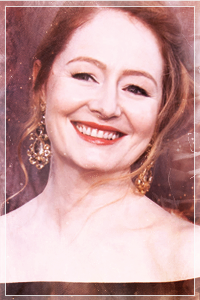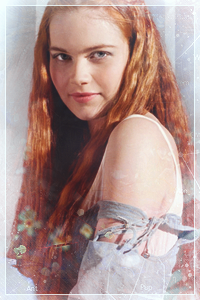A similar disclaimer from me in that I last reread Rebecca (and Jane Eyre at the same time incidentally!) when I briefly studied English at uni in Cornwall, so like early 2014 xD Will revisit my thoughts if I get a chance to reread!
Du Maurier never gives the heroine a first name, and she later admitted it was because she couldn't think of one. What impact does this have on how much or little we come to care for the character?
I agree with Soph here! Accidental conceit or not, I think it works so cleverly, esp. when juxtaposed with the looming first-name "Rebecca" in the title, it kind of interrogates who's the main character and points neatly to those questions (and insecurities) of identity tied up in our main character, whilst also letting "Mrs de Winter" everywhere without any sense of her first name be continual commentary on the place of women as the possessions of a man/not worth anything alone.
Skipping Qs 2-4 for now because I can't remember well how I felt re: character, although my general response when reading anything period is "gurl LEAVE HIM". (Jane Eyre I'm also looking at u xoxo) Nevertheless I love anything with a ~gothic slant and that's also especially why gothic is such a good genre for interrogating the place of women.
Many of du Maurier's novels are set in Cornwall and Rebecca is no exception though she was stationed abroad at the time of writing. What is the importance of the setting and does she project that love of home onto Maxim? Would Rebecca be as powerful elsewhere in the world?
First off let me tell you a thing about Cornwall. Cornwall is a weird-ass place. This could be very subjective of me but I feel like it's often reflected/romanticised in literature about the place, all du Maurier's stuff included... but it has a bit of an otherworldly feel, like it's totally its own land, and I think once you've lived there it has a strange eternal hold on you. (I say this because I lived there for ~9 months ish and knew a lot of people who'd come from all over and very quickly you turn into this "Kernow Pride" person, even when you leave.
i'm ignoring the ugly nationalists who live there and support ukip It's always had its own little culture and remains very heavily attached to its Celtic roots etc. Also Cornwall is very proud of du Maurier, one of the campus buildings was named after her lol.)
No, but I think - especially when you go back a little in time - Cornwall has this remote end-of-the-world feel about it, lots of cliff walks and land trailing off into nothing, kind of like the Florida at the bottom of Britain, only has one (1) official city, and it's also full of ~haunting things like abandoned tin mines and basically half the population were involved in smuggling at one point, and it has its own misty moor vibe which works well with how nicely du Maurier vibes with the Brontes and Yorkshire. (Moreso in Jamaica Inn probably but a lot of real places crop up/inspire her too.) Anyway this to say I think Cornwall works especially well for the setting because there's kind of a feel of impending self-destruction to the whole novel with shipwrecks and suicides and whatnot and you would not feel quite like so much of a hopeless castaway in the middle of London.

look ANOTHER beautiful bee!set <3
![[Image: manderley.jpg?w=640]](https://wordsmusicandstories.files.wordpress.com/2017/01/manderley.jpg?w=640)
![[Image: oDchrqE.png]](https://i.imgur.com/oDchrqE.png)









![[Image: spldSej.png]](https://i.imgur.com/spldSej.png)










![[Image: axFsLGd.jpeg]](https://i.imgur.com/axFsLGd.jpeg)





![[Image: 8nCLLpg.png]](https://i.imgur.com/8nCLLpg.png)